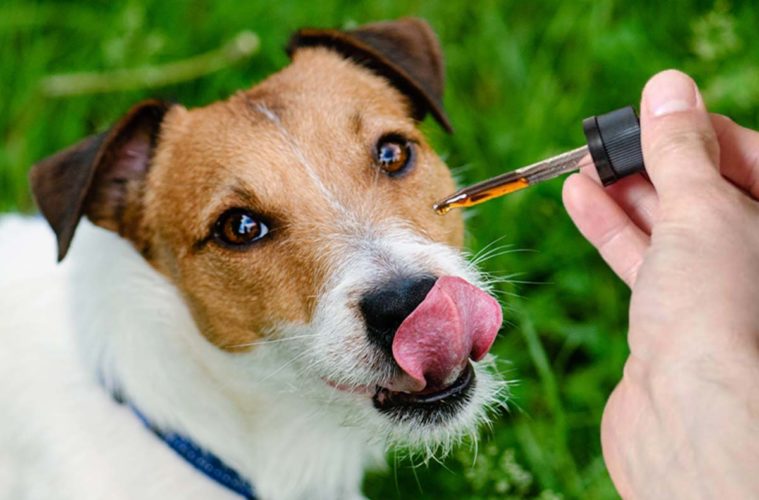There is a lot of information out there about CBD and its beneficial uses for humans. There is also research that has been conducted on how it can help with your pets, too. What exactly is CBD and how can it benefit your dog?
From anxiety to seizures, there are ample ways in which CBD can help your canine cope with pain and stress. Let’s dive in and see how a holistic approach to pet care can help.

The Difference Between CBD and THC
CBD is only one of the many compounds that are found in the cannabis plant. It’s completely separate from THC which is the compound that provides the mind-altering effects humans have experienced. CBD, known as cannabidiol, has less than 0.3% THC, or delta-9 tetrahydrocannabinol. This is why when people or animals use CBD, there are no psychological impairing effects that happen to the body.
How can CBD Help Dogs?
CBD has been used as a therapeutic approach for both physical and mental ailments in humans. It’s been used for cancer treatments, inflammatory conditions, mental health issues, and pain management. Despite there being a lack of research on animals, CBD has shown that there can also be very similar positive effects on your furry friend.
Before going out and buying all of your pet treats and supplements, remember that CBD is not meant to be a replacement for any type of treatment. You should always consult your vet when considering the use of CBD for any and all medical issues for your pet.
Improved Appetite
If you’ve noticed your dog barely eating or experiencing more frequent vomiting, CBD could be extremely helpful in decreasing the feeling of nausea and increase their overall appetite. This is especially beneficial if you have an older canine in helping to aid their digestive system.
Pain Relief
Just like humans, pain management can be alleviated through CBD therapy. With tinctures and edibles, it’s easy to give a small dosage in their food or excite them with a flavorful treat to ease your puppy’s pain. CBD has anti-inflammatory properties to reduce pain in their joints which can also, in turn, help them sleep better, too.
Seizures
One of the biggest areas that have been researched is the use of CBD for humans. Again, there is less research conducted for dogs and other animals, but it has shown that when combined with other anti-seizure medications, CBD can limit the frequency of seizures.
Anxiety
After COVID-19, more dogs began to experience separation anxiety. This is because dog parents were working from home and their usual routine was disrupted. Because dogs are creatures of habit, they prefer routine. When the routine changes, such as their owner being home all of the time, it can increase their level of anxiety when their owner leaves them alone at home. CBD for pets has been shown to help with their overall anxious behavior.
Risks of CBD for Dogs
As said before, there is a lack of research that has been conducted on the use of CBD for pets, so it’s crucial to speak with your vet prior to using it for therapy or pain management. Because of the lack of research, this also means there is a lack of information in terms of side effects.
In the research that has been done, side effects have included dry mouth, lowered blood pressure, and drowsiness. There have also been cases where there’s been an increase of alkaline phosphatase (ALP), which is important for the liver.
What to Look For
After consulting with your vet, it’s important that you are looking for CBD products for your dog that are safe and reliable. Consumers should be careful when considering where to buy CBD from for their pets. Make sure they are white-label products and are certified by the FDA. White labels mean they are manufactured by one company and distributed to several. This is a safer approach because there has been proper testing been done on their products since they are mass distributed.
Conclusion
There is still a significant amount of research that needs to be conducted when it comes to the use of CBD for animals. However, when consulting with your vet, it could be a healthy solution to some of your pet’s minor and major issues they’re experiencing.
Leave a Reply